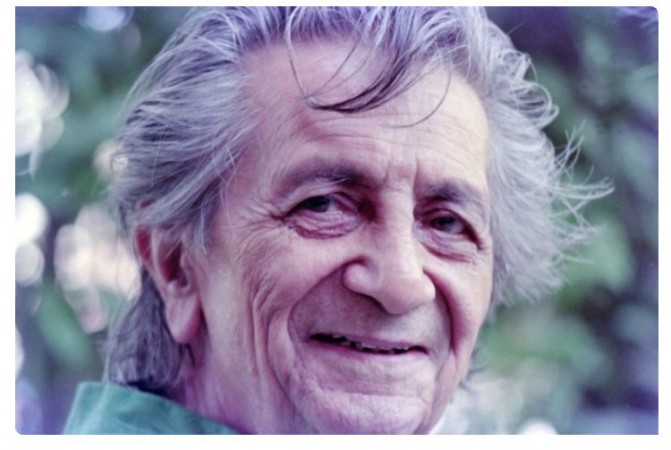
July 11 marks the death anniversary of Bhisham Sahni, a prominent figure in modern Indian literature. Known for his contributions as a playwright and novelist, Sahni left an indelible mark on the literary landscape of India. His insightful narratives, nuanced character portrayals, and powerful social commentary made him a revered figure among both readers and critics. As we commemorate his legacy on this solemn occasion, let us delve into the life and literary achievements of this extraordinary writer.
Early Life and Education: Bhisham Sahni was born on August 8, 1915, in Rawalpindi, which was then a part of undivided India. He hailed from a family deeply involved in theater, with his father, Balraj Sahni, being a renowned actor. Bhisham Sahni completed his education in Lahore, where he earned a Bachelor's degree in English Literature from Government College. His exposure to the rich cultural milieu of pre-independence India played a significant role in shaping his literary sensibilities.
Contribution to Indian Theatre: Sahni's literary journey began with his foray into theater. He wrote and directed plays that explored various social issues and sought to highlight the struggles faced by the common man. His notable plays include "Madhvi," "Panchhi Aise Aate Hain," and "Kabra No. 2." Through his works, Sahni delved into themes such as communal harmony, political corruption, and social inequality. His plays were characterized by their realistic portrayals, sharp dialogue, and thought-provoking narratives.
Literary Achievements: While Sahni's contributions to Indian theater were significant, he gained widespread acclaim as a novelist. His magnum opus, "Tamas" (Darkness), published in 1974, is regarded as a seminal work in modern Indian literature. Set against the backdrop of the Partition of India in 1947, "Tamas" masterfully captures the horrors and human tragedies that unfolded during that tumultuous period. The novel explores the themes of communal violence, identity, and the loss of innocence, leaving a profound impact on readers. Sahni's other notable works include "Mai" (Mother), "Adha Gaon" (Half a Village), and "Agnipankh" (The Fire's Wings).
Social Commentary and Humanism: Bhisham Sahni's writings were characterized by his deep empathy for the marginalized and oppressed. He fearlessly critiqued societal inequalities and challenged the status quo. His narratives often shed light on the struggles faced by the common man, emphasizing the importance of compassion and understanding in a society plagued by divisiveness. Sahni's works serve as a testament to his commitment to social justice and humanism.
Legacy and Recognition: Bhisham Sahni's literary contributions earned him numerous accolades and recognition. He was awarded the Sahitya Akademi Award for "Tamas" in 1975, one of the highest literary honors in India. Sahni's works have been translated into multiple languages, enabling readers around the world to appreciate his profound storytelling. His legacy continues to inspire budding writers and intellectuals, and his impact on modern Indian literature remains indelible.
As we commemorate the death anniversary of Bhisham Sahni, we honor his invaluable contributions to Indian literature. His insightful narratives and thought-provoking plays continue to resonate with readers, offering a poignant reflection on the human condition. Sahni's unwavering commitment to social justice and his unwavering belief in the power of literature to effect change make him a luminary of modern Indian literature. On this solemn occasion, let us remember his remarkable legacy and celebrate the enduring power of his words.